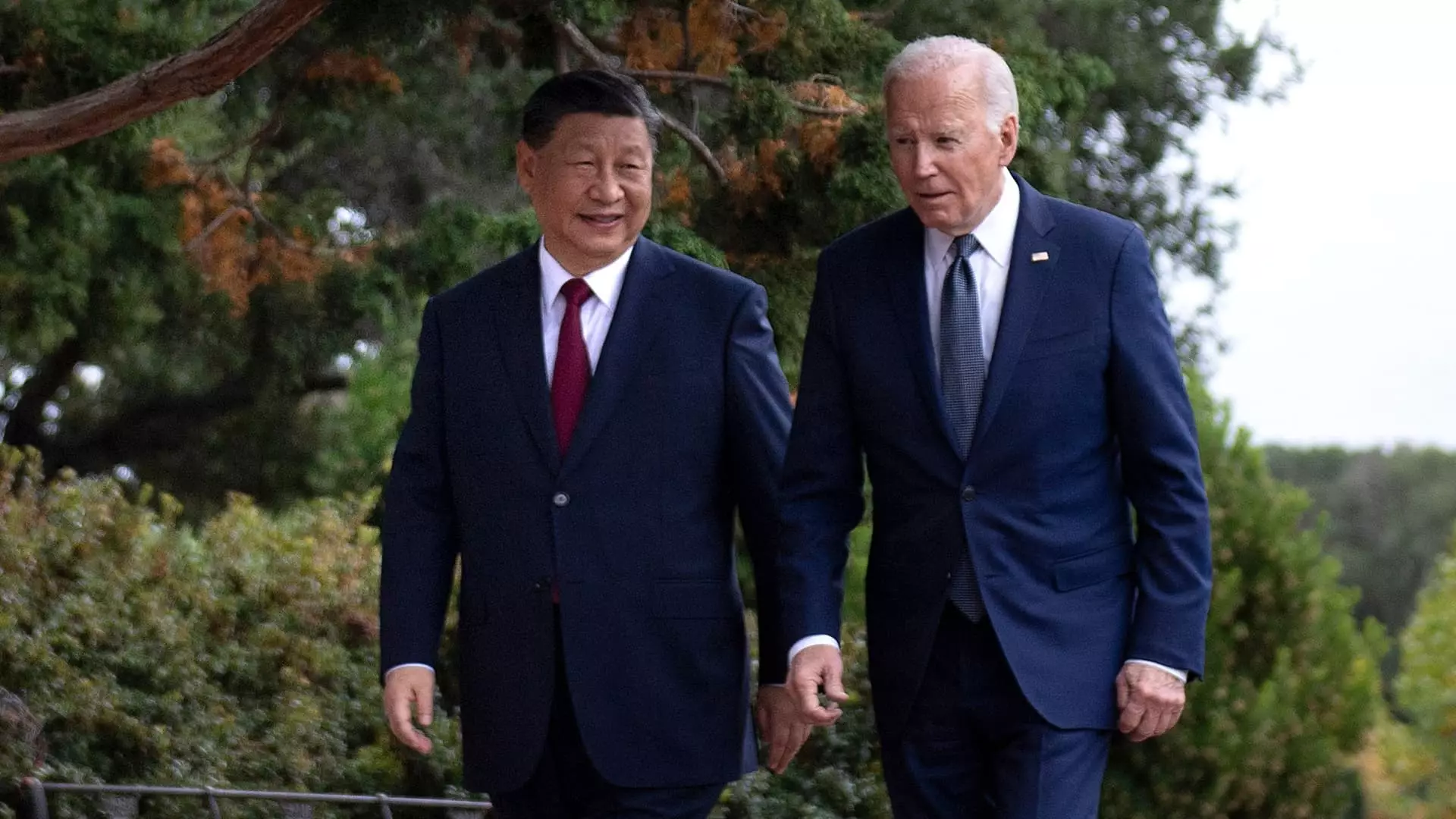Chinese President Xi Jinping conveyed a stern message to President Joe Biden during their recent summit in San Francisco regarding the reunification of Taiwan with mainland China. According to three current and former U.S. officials, Xi emphasized that while Beijing aims to unify Taiwan with China peacefully, the timing of this reunification has not yet been decided. Xi also dismissed predictions made by some U.S. military leaders that Taiwan would be taken by force in either 2025 or 2027, stating that he had not set a specific timeframe. These revelations provide crucial insights into the meeting between the two leaders, which sought to alleviate tensions between the United States and China.
During the group meeting attended by American and Chinese officials, Xi expressed China’s preference for the peaceful reunification of Taiwan, rather than resorting to military force. While his words echo previous public statements on the matter, U.S. officials paid attention to his candid message due to China’s increasingly aggressive behavior towards Taiwan in recent times. The delivery of this warning took place ahead of Taiwan’s upcoming presidential election, which holds significant implications for the self-governing democratic island. While Xi’s language was not confrontational, it reflected his consistent tough stance on Taiwan, according to a U.S. official familiar with the conversation.
Notably, Chinese officials had requested that President Biden publicly declare the United States’ support for China’s goal of a peaceful reunification with Taiwan and opposition to Taiwanese independence. However, the White House rejected this request, revealing a degree of divergence between the two nations on their approach to the Taiwan issue. The National Security Council declined to comment on the matter.
The meeting between President Biden and President Xi was crucially significant, as it aimed to reduce tensions between the United States and China. The Biden administration is highly concerned about Xi’s saber-rattling on Taiwan and is actively working to avoid a military conflict with China. During last year’s Chinese Communist Party Congress, Xi publicly emphasized that China would use military force if Taiwan declares independence with foreign support. He clarified that this threat of force was directed at foreign interference and individuals seeking Taiwanese independence. For the Biden administration, the primary challenge lies in preventing a military conflict with China while pursuing economic development.
Xi’s goal of doubling the size of the Chinese economy by 2035 underscores the importance of economic development for China. Some experts question the likelihood of China attacking Taiwan if it refrains from declaring independence, as military conflict would hinder Beijing’s economic objectives. Xi’s concerns about the upcoming Taiwanese presidential election reflect the influence the U.S. has on Taiwan, as noted by U.S. officials. When Biden requested that China respect Taiwan’s electoral process, Xi acknowledged the importance of peace but emphasized the need to work towards a resolution.
The meeting between Biden and Xi marked their first in a year and required significant efforts from American officials to arrange. The low point in U.S.-China relations in February, following the shooting down of a Chinese spy balloon by the United States, made this meeting particularly critical in easing tensions. President Biden reaffirmed his commitment to avoiding conflict and emphasized the competitive yet rational and manageable nature of the relationship between China and the United States. CIA Director William Burns had previously highlighted U.S. intelligence indicating that Xi has directed his military to be ready to invade Taiwan by 2027. While Biden has previously stated the U.S. military would defend Taiwan if China were to invade, the White House has since adjusted its stance.
Under the “One China” policy, the United States recognizes Beijing as China’s sole legal government but maintains unofficial relations with Taiwan. Beijing claims Taiwan as its own territory. Biden reiterated this long-standing U.S. policy after the summit, emphasizing that there would be no change in support for the “One China” policy. The discussion of the Taiwan issue during the summit underlines its significance in China-U.S. relations, according to a Chinese official who attended the meeting, Hua Chunying.
President Xi Jinping’s message to President Joe Biden during their recent summit revealed China’s preference for peaceful reunification with Taiwan, dispelling predictions of military force in the near future. The rejection of China’s request for public support by the United States exemplifies the divergence in their stances. As tensions persist, the Biden administration remains committed to rationality, avoiding conflict, and upholding the “One China” policy while emphasizing the influence of the U.S. on Taiwan. The challenge lies in finding a peaceful resolution that aligns with China’s economic objectives and avoids jeopardizing regional stability.

Leave a Reply